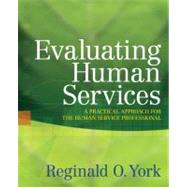
| Evaluation Research and Scientific Inquiry | |
| The Nature of Scientific Research | |
| The Nature of Scientific Inquiry [1.A] | |
| An Examination of Some Common Sense Principles [1.B] | |
| Evaluation Research Uses a Process of Discovery, Not Justification. [1.B.1] | |
| Don't Re-invent the Wheel! [1.B.2] | |
| Don't Put the Cart Before the Horse! [1.B.3] | |
| Two Heads are Better than One! [1.B.4] | |
| Some Things Happen Just by Chance! [1.B.5] | |
| When We Wear the Research Hat | |
| We must be Very Cautious in Our Conclusions. [1.B.6] | |
| Applying the Basic Principles--Does the Full Moon Make People Act Different? [1.C] | |
| Studies on the effect of the full moon [1.C.1] | |
| Ethics in Social Research [1.D] | |
| Four Purposes of Research [1.E] | |
| How are different types of research similar? [1.F] | |
| Two Processes of Scientific Inquiry--Deductive and Inductive [1.G] | |
| Two Forms of Information-Quantitative and Qualitative [1.H] | |
| Four Methods of Gathering Information: Surveys, Interviews, Direct Observation, and Documents [1.I] | |
| Scientific Research and Cultural Competence. [1.J] | |
| Summary | |
| Quiz | |
| Conducting a Study to Illustrate Common Sense Principles of Science | |
| A Brief Review of Research Ethics before We Begin Our Study [2.A] | |
| Our Initial Steps in the Study [2.B] | |
| Let's make sure we are not re-inventing the wheel. [2.B.2] | |
| Let's make sure we are using a process of discovery, not justification. [2.B.3] | |
| Are we putting the cart before the horse? [2.B.4] | |
| The Next Steps in Our Study Process [2.C] | |
| Calculating the Number of Your Soul Urge [2.C.1] | |
| Taking into Consideration that Some Things Happen Just by Chance. [2.C.2] | |
| We're wearing the research hat, so let's be sure we are cautious in our conclusions. [2.C.3] | |
| Quiz | |
| An Overview of Evaluation Research | |
| What is Evaluation? [3.A] | |
| Key Questions in Evaluation [3.B] | |
| How well are our services reaching the target population? [3.B.1] | |
| Are clients satisfied? [3.B.2] | |
| Have our clients experienced growth? [3.B.3] | |
| Did the service cause the client growth? [3.B.4] | |
| The Scope of Evaluation Research [3.C] | |
| The Nature of Program Evaluation Research [3.C.1] | |
| The Nature of Clinical Evaluation Research [3.C.2] | |
| Types of Evaluation [3.D] | |
| The Evaluation of Need [3.D.1] | |
| The Evaluation of Service Process [3.D.2] | |
| The Evaluation of Efficiency [3.D.3] | |
| The Evaluation of Outcome [3.D.4] | |
| The Evaluation of Client Satisfaction [3.D.5] | |
| Using Client Surveys to Assess Outcome Retrospectively [3.D.6] | |
| Selected Models of Evaluation [3.E] | |
| The Experiment [3.E.1] | |
| The Case Study Method [3.E.2] | |
| Utilization-focused Evaluation [3.E.3] | |
| Summary | |
| Quiz | |
| Preliminary Exercises in the Evaluation of Human Services | |
| Exercise A: Using NGT to Evaluate Client Need | |
| The NGT Process | |
| Advantages and Limitations of NGT | |
| Step-by-Step Procedures for Using Nominal Group Technique (NGT) | |
| Determining Whether to Use NGT | |
| Preparing for the NGT Meeting | |
| Convening the Meeting and Introducing the NGT Process | |
| The Silent Generation of Ideas in Writing | |
| The Roundrobin Recording of Ideas | |
| Serial Discussion for Clarification | |
| Preliminary Vote on Item Importance | |
| Discussion of the Preliminary Vote | |
| Final Vote | |
| Forms to be used with the NGT procedures | |
| Exercise B: Preliminary Examination of Service Process | |
| Identifying the Program and Client Needs | |
| Assessing Service Process | |
| Exercise C: Preliminary Design of an Outcome Study | |
| Task #1: Identifying the target behavior | |
| Task #2: Identifying the Interve | |
| Table of Contents provided by Publisher. All Rights Reserved. |
The New copy of this book will include any supplemental materials advertised. Please check the title of the book to determine if it should include any access cards, study guides, lab manuals, CDs, etc.
The Used, Rental and eBook copies of this book are not guaranteed to include any supplemental materials. Typically, only the book itself is included. This is true even if the title states it includes any access cards, study guides, lab manuals, CDs, etc.